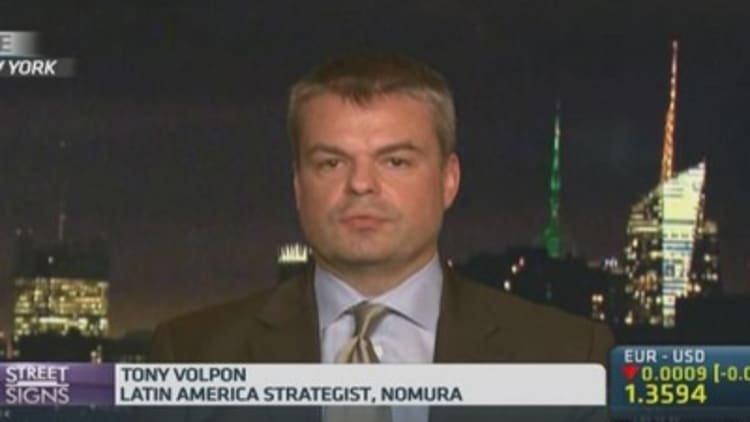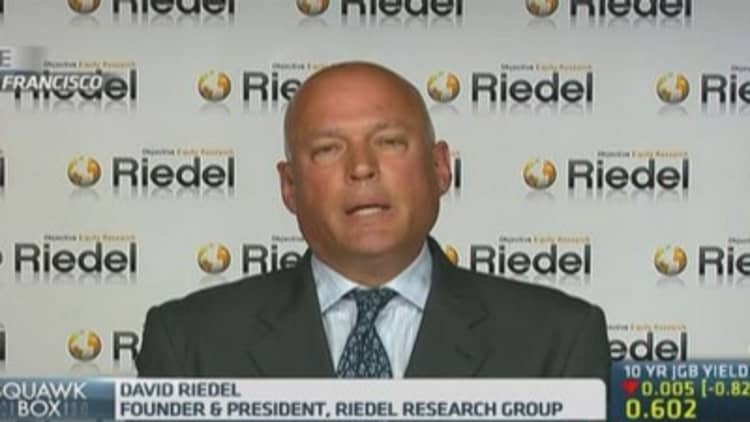
Brazil's economy has stumbled badly, but some analysts say upcoming elections and fresh polls showing rising dissatisfaction with the government could herald a change.
"The consensus is still that (President) Dilma Rousseff will win reelection" when the country votes on October 5, Tony Volpon, strategist for Latin America at Nomura, told CNBC. "But the government favorability ratings have been dropping like a stone. The latest poll numbers put that at 31 percent," he added.
Read More Will the World Cup make Brazil stocks a buy?
Volpon believes the current government's policies have done "real damage" to some sectors of the economy, citing in particular the negative effects on the energy sector of refusing to allow gasoline and electricity prices to rise in an effort to control inflation.
Economic growth in Brazil has slowed in recent years, with gross domestic product (GDP) expanding just 2.3 percent last year, compared with 7.5 percent in 2010. The International Monetary Fund (IMF) forecasts growth of just 1.8 percent for 2014. Brazil needs annual GDP growth of an average 4.2 percent through 2030 to lift half of its vulnerable population into the middle class, economists at NBER recently estimated.
Read More Commentary: Brazil's own goals
Investor confidence indexes for the country have fallen to 2008-09 financial crisis levels, "which really shows that the business sector in Brazil has repudiated these policies," Volpon said.
Another factor likely making investors nervous: In March, Standard & Poor's (S&P) downgraded Brazil's long-term debt rating to BBB minus, one notch above "junk" status. Brazil is rated BBB by Fitch and Baa2 by Moody's.
Read More World Cup boost for Brazil? Don't bet on it
"The main opposition candidate Aecio Neves of the PSDB party - the Social Democratic party - has made it quite clear that he's going to reverse these policies," Volpon said. "So if there is an opposition victory, investor confidence will be reestablished and that will have a real big boost in terms of growth."
Others expect the stock market, and investor sentiment, will react positively initially if the incumbent is ousted.

"If one of the opposition candidates favored by investors were to win the presidency — which may be decided only down to the wire, just before Halloween — it's easy to see the market rallying further," Citigroup said in a note Monday.
"In the opposite case, a drop on disappointment is likely," the note said.
But it isn't clear that an opposition victory would necessarily bring much relief to either stock market investors or the economy this year.
Read More World Cup, Olympics seen lifting Brazil richest 1%
"The subsequent two quarters or so we think would bring frustration after an opposition win, as fiscal and monetary adjustment would be harsh," Citigroup said.
In addition, waiting until after the election to push through reforms will likely take a toll on the economy.
"Business and consumer sentiment are falling swiftly, and with meaningful changes in policymaking unlikely to materialize before the October elections, we believe Brazil will endure prolonged stagflation," Barclays said in a note Friday.
It cut its 2014 economic growth forecast to 0.7 percent from 1.7 percent and lowered its 2015 forecast to 1.0 percent from 2.4 percent.
—By CNBC.Com's Leslie Shaffer; Follow her on Twitter @LeslieShaffer1

